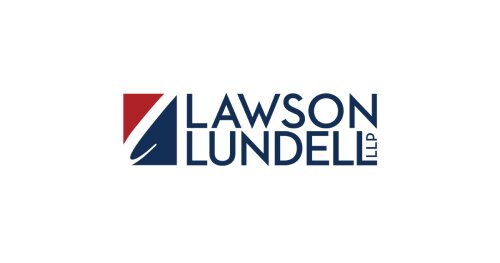Best Brokerage Lawyers in Yellowknife
Share your needs with us, get contacted by law firms.
Free. Takes 2 min.
Free Guide to Hiring a Real Estate Lawyer
List of the best lawyers in Yellowknife, Canada
About Brokerage Law in Yellowknife, Canada
Brokerage law in Yellowknife, Canada, pertains to the legal framework governing brokers who act as intermediaries in various transactions, including real estate, financial services, and insurance. As the capital of the Northwest Territories, Yellowknife operates under specific regional regulations that complement Canadian national laws. Brokers must be licensed and adhere to ethical standards to ensure fair practices. This legal area is vital for ensuring transparency, protecting consumer interests, and maintaining trust in transactional processes.
Why You May Need a Lawyer
There are several scenarios where individuals or businesses might require legal advice on brokerage matters in Yellowknife:
- Entering into a new brokerage agreement or modifying an existing one.
- Disputes arising from a breach of brokerage duties or contracts.
- Understanding regulatory compliance requirements for licensing and operations.
- Legal representation in claims of misrepresentation or fraudulent activity.
- Advice on brokerage fees, commissions, and other financial aspects of transactions.
Local Laws Overview
Brokerage activities in Yellowknife are governed by a combination of federal and territorial laws. Key aspects include:
- Licensing Requirements: Brokers must be licensed by relevant territorial authorities and comply with continuing education standards to maintain their credentials.
- Consumer Protection: Brokers must adhere to strict guidelines that protect consumers from unethical practices, ensuring transparency and fairness in all dealings.
- Disclosure Obligations: Full disclosure of relevant information is mandatory in brokerage transactions to prevent misrepresentation.
- Financial Regulations: Detailed accounting records must be kept by brokers, and they must follow regulations concerning client funds and transactions.
Frequently Asked Questions
What are the initial steps to become a licensed broker in Yellowknife?
To become a licensed broker, you must complete the required educational programs specific to your brokerage field, pass the licensing exam, and register with the appropriate regulatory body in the Northwest Territories.
Are brokerage agreements legally binding in Yellowknife?
Yes, brokerage agreements are legally binding contracts, and both parties must adhere to the terms and conditions outlined within them.
What should I do if I have a dispute with my broker?
If you have a dispute, it's advisable to first address the issue directly with the broker. If unresolved, seeking legal advice or assistance from regulatory bodies may be necessary.
Can a broker act for both buyer and seller in a transaction?
Dual agency is permitted, but the broker must fully disclose this arrangement to both parties and obtain their consent.
How can I verify a broker's credentials?
You can verify a broker's credentials by checking with the local regulatory authority or licensing body that governs brokerage activities in Yellowknife.
What are the penalties for unlicensed brokerage activity?
Engaging in unlicensed brokerage activity can result in fines, legal sanctions, and potentially criminal charges depending on the severity of the breach.
Is it important for brokers to have errors and omissions insurance?
Yes, errors and omissions insurance is crucial as it protects brokers against claims of negligence or inadequate work.
What obligations do brokers have concerning client confidentiality?
Brokers must maintain strict confidentiality of client information, as any breach could lead to legal consequences and damage their professional reputation.
How are disputes usually settled in brokerage agreements?
Disputes are often resolved through mediation or arbitration as stipulated in the brokerage agreement, but litigation may also be pursued if necessary.
What are the typical fees associated with brokerage services?
Fees vary depending on the service provided, such as flat fees, hourly rates, or a commission percentage, and should be clearly outlined in the brokerage agreement.
Additional Resources
For additional information and guidance, consider consulting the following resources:
- Northwest Territories Real Estate Association - Provides education and licensing information.
- Financial and Consumer Affairs Authority of Saskatchewan - Offers insights into consumer protection and broker regulations.
- Legal Aid NWT - Offers legal resources and support to residents of the Northwest Territories.
Next Steps
If you need legal assistance in brokerage matters, consider reaching out to a local attorney specializing in brokerage or real estate law. They can provide personalized advice and represent you in any legal proceedings. Starting with a consultation can help understand your legal standings and the best course of action for your specific situation.
Lawzana helps you find the best lawyers and law firms in Yellowknife through a curated and pre-screened list of qualified legal professionals. Our platform offers rankings and detailed profiles of attorneys and law firms, allowing you to compare based on practice areas, including Brokerage, experience, and client feedback.
Each profile includes a description of the firm's areas of practice, client reviews, team members and partners, year of establishment, spoken languages, office locations, contact information, social media presence, and any published articles or resources. Most firms on our platform speak English and are experienced in both local and international legal matters.
Get a quote from top-rated law firms in Yellowknife, Canada — quickly, securely, and without unnecessary hassle.
Disclaimer:
The information provided on this page is for general informational purposes only and does not constitute legal advice. While we strive to ensure the accuracy and relevance of the content, legal information may change over time, and interpretations of the law can vary. You should always consult with a qualified legal professional for advice specific to your situation.
We disclaim all liability for actions taken or not taken based on the content of this page. If you believe any information is incorrect or outdated, please contact us, and we will review and update it where appropriate.









